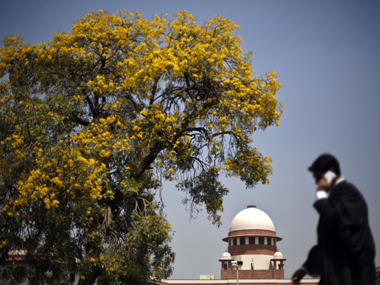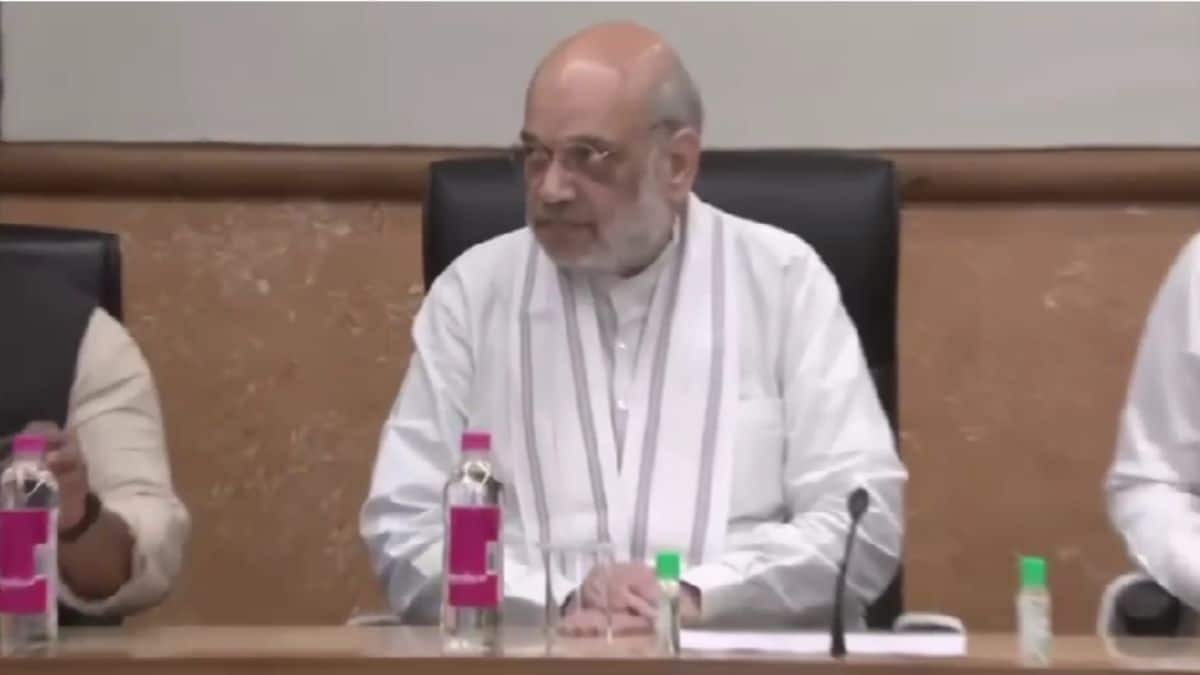A nine-judge bench on Wednesday will hear several petitions challenging the government’s rule of making Aadhaar mandatory for all citizens. The Supreme Court decided to set up a nine-judge bench who will determine whether right to privacy can be declared as a fundamental right under the Indian Constitution. The move comes after the new Attorney-General KK Venugopal and senior advocate Shyam Divan asked the Supreme Court to constitute a Constitutional bench to decide on the case. “We are of the view that it should be referred to a nine-judge bench. At this stage, it is essential for us to define if the right to privacy is a fundamental right under the Constitution or not,” Livemint quoted a five-member bench led by Justice JS Khehar as saying on Tuesday.
While the hearing of the cases will start at around 9.30 am on Wednesday, the final judgment on the petitions is only expected later this week or next week. The apex court is also likely to put to rest the legal challenges involved in the the government’s push to universalise the Aadhaar plan.
While the case was supposed to be heard by a five-member bench, the Chief Justice of India decided to refer it to a larger nine-member bench on Wednesday. [caption id=“attachment_3829341” align=“alignleft” width=“380”] The Supreme Court of India. Reuters[/caption] While the Aadhar issue is the centre of the storm in the apex court, the larger bench will also examine two previous cases where the issue of privacy were raised. MP Sharma case (1955) In the MP Sharma case (1955), a eight-judge bench headed by the then Chief Justice MC Mahajan had
held:
“A power of search and seizure is, in any system of jurisprudence, an overriding power of the State for the protection of social security and that power is necessarily regulated by law. When the Constitution makers have thought fit not to subject such regulation to constitutional limitations by recognition of the fundamental right to privacy, analogous to the American Fourth Amendment, there is no justification for importing into it, a totally different fundamental right by some process of strained construction.”
Kharak Singh case (1962) Seven years later, in the Kharak Singh verus Uttar Pradesh case (1962), a six-judge bench headed by then chief justice BP Sinha had observed that the right to privacy was not a guaranteed right under the Indian Constitution, adding that surveillance of a person was not an infringement of a person’s fundamental right. However, in the Gobind versus the State of Madhya Pradesh case (1975), the Supreme Court had ruled in favour of right to privacy. Delivery the judgement, Justice K Matthew had observed:
“Individuals need a place of sanctuary where they can be free from societal control. The importance of such a sanctuary is that individuals can drop the mask, desist for a while from projecting on the world the image they want to be accepted as themselves, an image that may reflect the values of their peers rather than the realities of their natures. Rights and freedoms of citizens are set forth in the Constitution in order to guarantee that the individual, his personality and those things stamped with his personality shall be free from official interference except where a reasonable basis for intrusion exists.”
However, the spectre of privacy came back to haunt the UPA and the NDA government over the Aadhaar scheme. A bunch of petitions challenged the constitutional validity of the scheme, alleging that it infringes upon their ‘fundamental right to privacy’.
While privacy rights activists argued that the scheme compromised the personal data of the citizens, the UPA as well as the NDA government maintained that the right to privacy is not a fundamental right.
It was in August 2015 t hat the Supreme Court (SC) referred to a Constitution Bench a batch of petitions challenging the Centre’s ambitious scheme to provide Aadhaar card to all citizens and decide whether right to privacy is a fundamental right. The apex court had said that the constitutionality of the Aadhaar plan depended on the nature and status of the right to privacy. Former Attorney General Mukul Rohatgi, appearing for the Centre, had said that the matter requires elaborate debate and an authoritative pronouncement in view of the fact that there have been inconsistent decisions as to whether right to privacy is a fundamental right. However, smaller benches had held contrary view and, hence the matter is now before the larger bench, the attorney general had said. With inputs from PTI


)

)
)
)
)
)
)
)
)



